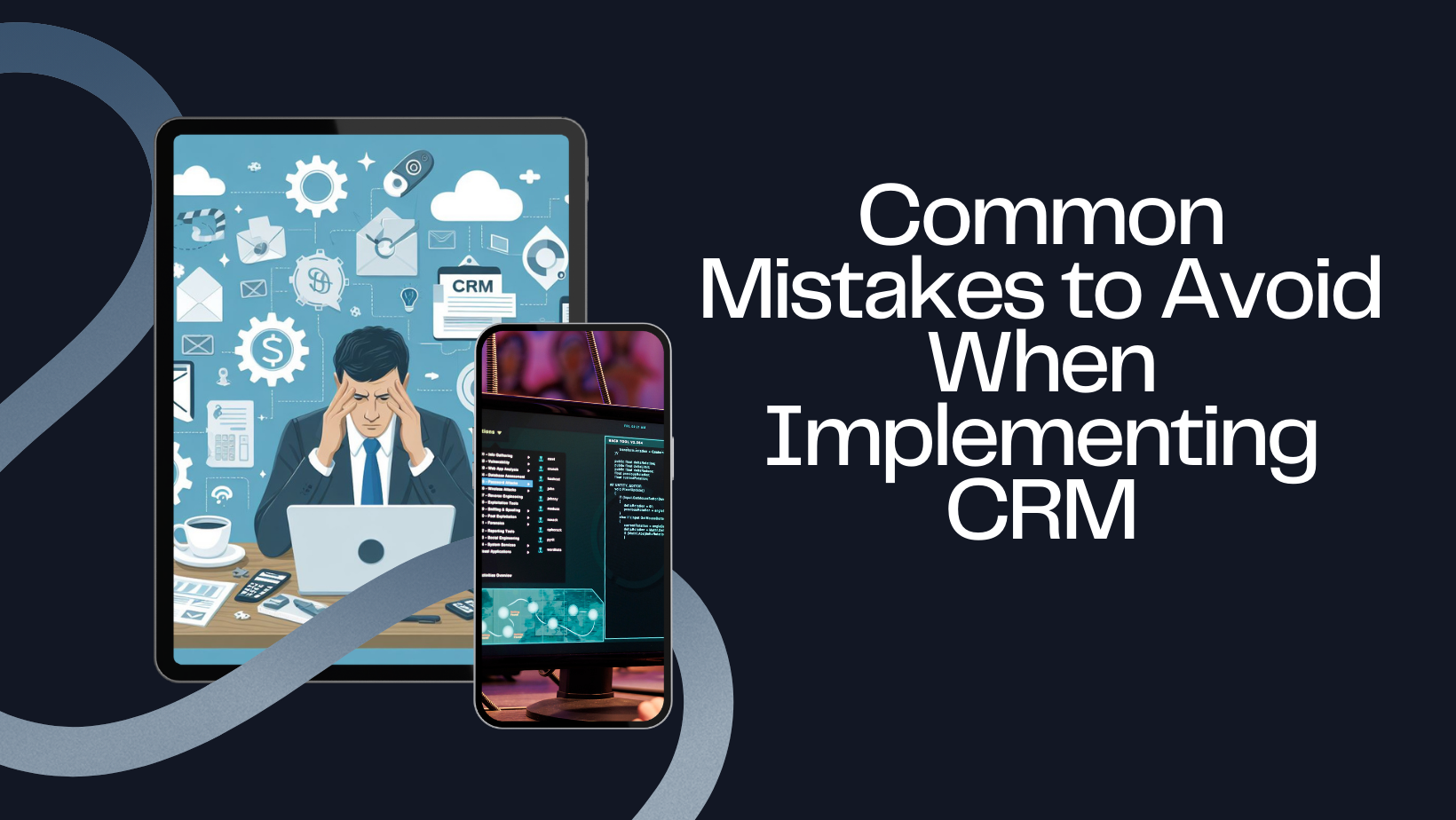Customer Relationship Management (CRM) systems are powerful tools that can revolutionize the way businesses manage their interactions with customers. However, the successful implementation of CRM requires careful planning and execution. Here are some common mistakes to avoid when incorporating CRM into your business strategy. Avoiding these common mistakes can significantly contribute to the success of your CRM implementation. Take the time to plan thoroughly, invest in user training, prioritize data quality, listen to user feedback, integrate with other systems, prioritize mobile accessibility, and manage change effectively. By doing so, you’ll pave the way for a more seamless and impactful CRM experience for your business.
- Insufficient Planning: One of the biggest mistakes is diving into CRM implementation without a clear plan. Take the time to identify your business goals, map out your processes, and define the key features you need in a CRM system. A well-thought-out plan will guide you through the implementation process and ensure that the CRM aligns with your specific needs.
- Neglecting User Training: CRM systems are only as effective as the people using them. Failing to provide adequate training for your team can lead to underutilization and frustration. Invest in comprehensive training programs to empower your employees to make the most of the CRM features, enhancing efficiency and productivity.
- Overlooking Data Quality: Garbage in, garbage out – this adage holds true for CRM systems. Inaccurate or incomplete data can undermine the system’s effectiveness. Regularly audit and clean your data to maintain its quality. Implement data validation rules to ensure that only accurate information enters the CRM, preventing errors from cascading through your database.
- Ignoring User Feedback: Your employees are on the front lines, interacting with customers and using the CRM daily. Ignoring their feedback can lead to missed opportunities for improvement. Create a feedback loop, encouraging users to share their experiences and suggestions. Regularly assess this feedback and make necessary adjustments to enhance user satisfaction and system performance.
- Lack of Integration: CRM systems are most beneficial when integrated with other business applications like marketing automation, ERP, and collaboration tools. Failing to integrate your CRM with these systems can result in data silos and inefficiencies. Ensure seamless communication between different platforms to maximize the value of your CRM investment.
- Ignoring Mobile Accessibility: In today’s mobile-centric world, overlooking mobile accessibility can hinder your CRM’s effectiveness. Ensure that your CRM system is optimized for mobile devices, allowing your team to access crucial information anytime, anywhere. This enhances flexibility and responsiveness, especially for employees on the move.
- Poor Change Management: Implementing CRM often involves significant changes in processes and workflows. Poor change management can lead to resistance from employees. Clearly communicate the reasons for the change, provide ongoing support, and involve key stakeholders in the decision-making process to foster a positive attitude towards CRM adoption.
Ending up: Xovient crafts CRM solutions that align precisely with your business objectives, ensuring optimal functionality and efficiency. Xovient provides user-friendly training programs to empower your team with the skills needed to maximize the benefits of the CRM system. With a focus on seamless integration, We ensures that your CRM system harmoniously works with your existing tools, fostering a unified and streamlined business environment. In conclusion, avoiding common mistakes during CRM implementation is crucial for unlocking the full potential of your investment. Our expertise can guide you through a successful implementation process, ensuring that your CRM system becomes a powerful asset in cultivating strong and lasting customer relationships.

